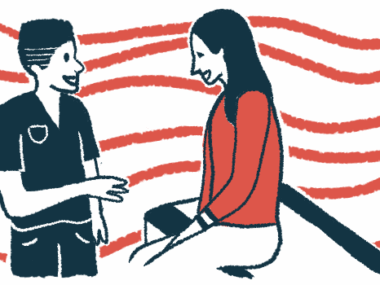Cushing’s Found to Cause ‘Persistent Mental Health Problems’ in Patients
Written by |

For years before and after their diagnosis, people with Cushing’s disease use more psychotropic medications — those that affect mood, thoughts, or perception — for mental health problems than their healthy peers, a study in Sweden found.
Notably, patients experiencing long-term disease remission still showed higher use of antidepressants and sleeping pills than healthy individuals.
These findings highlight Cushing’s persistent negative effects on mental health, according to researchers.
Additionally, the results of this study, based on prescribed medication dispenses in Sweden, support the importance of earlier diagnoses of Cushing’s disease — and the need for close and long-term monitoring of neuropsychiatric symptoms in this patient population, the researchers said.
The study, “Psychotropic drugs in patients with Cushing’s disease before diagnosis and at long-term follow-up — a nationwide study,” was published in the Journal of Clinical Endocrinology & Metabolism.
Mental health issues such as anxiety, depression, sleep disturbances, and cognitive impairments are part of the wide range of symptoms caused by the abnormally high levels of the cortisol hormone that characterize Cushing’s syndrome. Of note, Cushing’s disease is a form of Cushing’s syndrome caused by a tumor in the pituitary gland.
A “few” studies have reported the elimination or partial lessening of neuropsychiatric symptoms after successful Cushing’s treatment, according to the researchers.
But others noted that “impaired cognitive function and quality of life seemed to persist for a long time after biochemical [cortisol level-based] remission had been achieved,” the team wrote.
Now, these researchers, from several universities in Sweden, have assessed the use of psychotropic medications — reflecting mental health burden — in 372 people with Cushing’s disease. The use of such medications was assessed five years before diagnosis, at the time of diagnosis, and at five and 10 years post-diagnosis.
The patients, diagnosed between 1990 and 2018, were identified through the Swedish Pituitary Register, which covers 95% of all people with Cushing’s disease in the country. Most of the patients (76%) were women. Altogether, the patients’ mean age at diagnosis was 44 years.
For each individual with Cushing’s, four sex-, age-, and residential area-matched healthy individuals were used as controls for comparative analyses.
Data on each individual’s dispenses of medications commonly used for neuropsychiatric issues were obtained from the Swedish Prescribed Drug Register. This register, which fully covers all prescribed medications given throughout the country, also was used to determine each patient’s dispenses of other medications for Cushing’s disease symptoms, such as high blood pressure, also called hypertension, and diabetes.
The results showed that the use of antidepressants, anxiolytics — medications to lessen anxiety — and sleeping pills was at least twofold higher in Cushing’s patients than in healthy individuals during the five-year period before diagnosis, and at the time of diagnosis.
Five years after diagnosis, the proportion of patients using antidepressants (26%) and sleeping pills (22%) remained unchanged, and even individuals in remission showed significantly higher use of such medications than did controls (20–26% vs. 8.6–12%).
According to the results, one-third of the patients on antidepressants since their diagnosis were able to discontinue treatment before the five-year assessment — most having achieved disease remission. However, 47% of those receiving antidepressants at five years had initiated such treatment at a median of 2.4 years after diagnosis.
During the five-year follow-up, older age and being a woman appeared to increase the risk of antidepressant use among Cushing’s disease patients.
At 10 years of follow-up, the use of antidepressants and sleeping pills was not significantly different between groups, despite the fact that antidepressants use remained about the same among patients.
Notably, researchers conducted an analysis of 76 patients with sustained remission for a median of 9.3 years, and 292 matching controls. That analysis showed that the use of antidepressants and sleeping pills was significantly higher among patients.
The use of other medications, such as those for hypertension and diabetes, also was significantly more common among Cushing’s disease patients before, at diagnosis, and at five years post-diagnosis — although the post-diagnosis numbers dropped by half during that period.
After 10 years, only the use of anti-diabetic medications remained significantly higher in patients as compared with controls.
These findings suggest that other conditions associated with Cushing’s disease, such as hypertension and diabetes, are effectively lessened with treatment. However, they also highlight that “many patients with CD [Cushing’s disease] will have persistent mental health problems,” the researchers wrote.
In addition, visits to a psychiatrist and hospital admissions for treatment of psychiatric disorders tended to be more common among Cushing’s disease patients, even before diagnosis, the team noted.
“This nationwide register-based study shows that use of psychotropic drugs in CD patients is increased from several years before diagnosis,” the researchers wrote, adding that this use “remained elevated regardless of remission status, suggesting persisting negative effects on mental health,” the researchers wrote.
These findings highlight the importance of early diagnosis of Cushing’s disease and of considering neuropsychiatric symptoms “as an important part of the disease,” they concluded.
There is a “need for long-term monitoring of mental health” in Cushing’s, they wrote.





